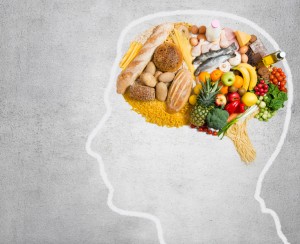
Cognitive health, including memory, concentration, alertness and problem solving, has potential to impact and improve every stage of life. This area has a particular relevance to the elderly. A significant number of people do develop dementia or depression in old age, but they are not an inevitable part of getting older. Prevention is key, as are measures to prevent deterioration for people who do develop such conditions.
So are there any foods that will boost our brain or protect its functioning as we age? In an era of ‘superfoods’, how can we start to unravel the myths from the facts, and look into the nutritional science of brain health? Strangely enough we can begin by looking to Europe. EU regulations require a detailed examination of the evidence to show that a health benefit can result from consuming a given food or nutrient before it can carry a claim; for instance that it can enhance learning ability.
The European Food Safety Authority (EFSA), overseeing these regulations, has not judged any single foods as being brain foods, but rather has detailed a number of nutrients that contribute to normal cognitive and psychological function. These include many of the B Vitamins, the minerals magnesium, iron, iodine and zinc and DHA, an omega-3 found in oily fish. But EFSA also list the humble carbohydrate; critics of carbs may do well to remember that they provide the brain’s preferred energy source!
EFSA also mention water as necessary for normal cognitive function. Dehydration may be more common in older people, who experience age-related deterioration in kidney function and fluid balance, and a poorer thirst response. The impact of dehydration on mental performance in older people is under recognised, yet plays an important role.
EFSA’s health claims are based on current evidence, but research linking diet and brain health is still in its infancy. The impact of antioxidants on brain function for example is still unclear. Research continues, but until more is understood a healthy, balanced diet, including oily fish, fruit and vegetables, wholegrains and dairy foods, providing a wide range of nutrients, gives our brain the best chance of avoiding disease.





